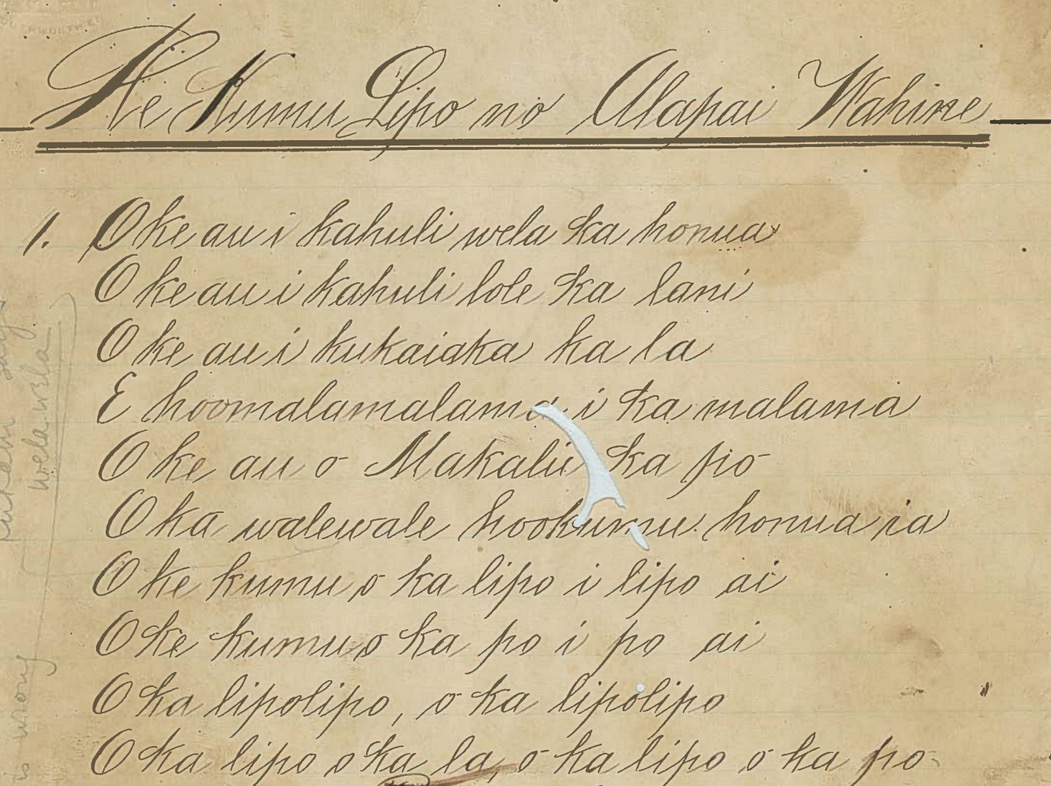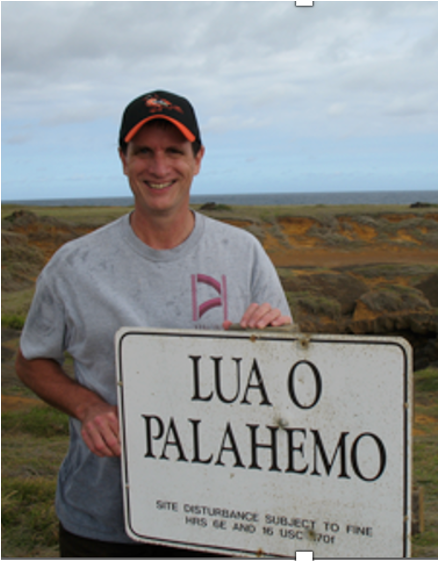Guided by our Kūpuna
Look to the source
I ulu no ka lālā i ke kumu.
Moʻolelo
The Institute of Hawaiian Language Research and Translation (IHLRT) is a collaborative research program established to provide access and research capacity to the extensive archive of Hawaiian language materials.
IHLRT allows all fields of scholarship in the University, for government agencies, nonprofit institutions, business entities and the community to study the Hawaiian language materials of the 19th and early 20th centuries. While facilitating research, this institute will provide professional training and innovative learning experiences to a new generation of translation leaders and scholars in all fields related to Hawaiʻi, its people and its history.
Mission Statement: To generate access to the resources of the Hawaiian language repository for all fields of study through research, translation and the training of a new cadre of capable resource people.
The Hawaiian Language Repository
He hoʻoilina mai nā kūpuna mai
There are extensive archival collections of government records and manuscript material, but a major focus of the IHLRT’s work will be providing access to the newly-digitized Hawaiian language newspapers of the last two centuries. Between 1834 and 1948, 125,000 pages of Hawaiian language newspapers were printed in 100 different papers, equal to over one million letter-size pages of typescript. Only a tiny fraction has ever been included in modern publication or discourse. This repository contains invaluable knowledge that has lain dormant for 100 years and up until the last decade has only been available by manually combing through reels of microfilm or handling fragile originals. New technology has made this material increasingly available and it is being investigated anew. This historical body of knowledge expands our understanding on many levels, providing a wealth of social, cultural and historical information relevant to our society today.
Though accessible, the entire cache is in the Hawaiian language. Successful language revitalization over the last 40 years has kept the Hawaiian language alive and produced nearly 20,000 speakers, but that is less than 5% of all Hawaiians and 2% of Hawaiʻi’s people today with some fluency in Hawaiian. Even fluent speakers find it difficult to read and understand the unfamiliar idiom, vocabulary and historical context of Hawaiian materials from the 1800s, so only a small circle have the ability to access the archival information, few of whom have the motivation or time to do so. Only 2-3% of the newspaper repository is included in modern research and publications at present and the remainder, unfamiliar to modern Hawaiian speakers, is completely beyond the reach and awareness of the general population, including researchers and scholars at our own university.

Access
IHLRT addresses these issues by focusing on the following:
- The surveying and cataloging of critical knowledge from within the Hawaiian language newspapers and translation of that information to inform a variety of discipline areas and community needs (to provide access for many content/discipline areas and to support community engagement).
- The development of new electronic and published resources drawn from the historical cache that serve both Hawaiian and English-speaking audiences (literature, language materials, cultural reference materials, topical curriculum resources, finding aids).
- The training and preparation of the next generation of researchers and translators (to inform teaching and learning and to generate able resource people).
- The documentation of the training process (to inform research on teaching, learning, mentorship, and methodology).
UH is committed to all of its units to uniquely and collectively reach the institutional goal of becoming a Native Hawaiian place of learning by providing access to Hawaiian language materials.
Kumu
We are grateful for all of the kumu who have deeply enriched our lives with their time, energy, and patience. Without their sacrifice and willingness to share, we would not be where we are today.
We give our aloha and mahalo to all of our beloved kūpuna.

Puakea Nogelmeier
Founder

Kapali Lyon
Mentor

Lalepa Koga
Mentor
Mea Kōkua
We are grateful for the mea kōkua who have been a part of IHLRT throughout the years. The body of work contained on this site is largely due to the collaborative efforts of many hard working individuals over many years. Mahalo to our poʻo, Kaiwipunikauikawēkiu Punihei Lipe, our former administrator, ʻAnoʻilani Aga, and our current program manager, Avis Kuuipoleialoha Poai. We want to acknowledge and mahalo our translators for their dedication and aloha for IHLRT: Uʻilani Au, Kilika Bennett, Kaimana Chock, Iasona Ellinwood, Loke Fergestrom, Paige Miki Kalāokananikiʻekiʻe Okamura, Avis Kuuipoleialoha Poai, Kapōmaikaʻi Stone, Manakō Tanaka, Jon Yasuda. Finally, we wish to give our aloha to Poʻokela Poai (@azysma) for contributing many of the photos that are used on this website.
We give our aloha and mahalo to our former haumāna and look forward to see all that they will accomplish in their future endeavors.
